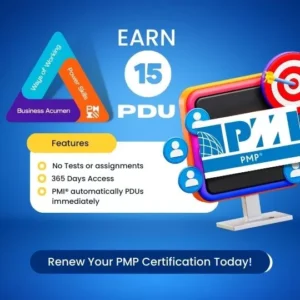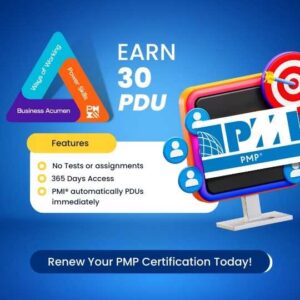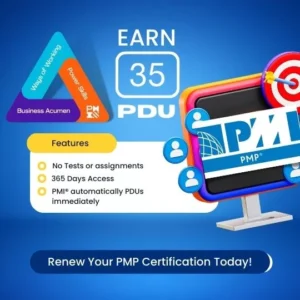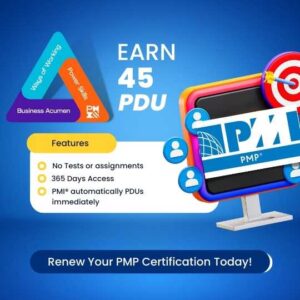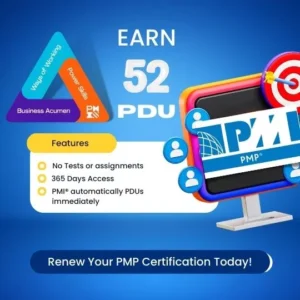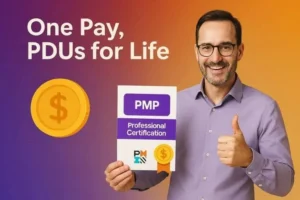In the ever-evolving realm of project management, professionals often find themselves comparing PMP vs Scrum Master certifications to determine the best fit for their career goals. These certifications represent distinct methodologies in the project management world, and the debate over “ PMP vs Scrum Master” is ongoing. In this comprehensive guide, we will dive deep into the differences, similarities, and the potential career implications of both.
Understanding PMP vs Scrum Master Certifications
- PMP:PMP, administered by the Project Management Institute (PMI), stands for Project Management Professional. It is a globally recognized certification that demonstrates an individual’s competence in leading and directing projects.
- Scrum Master: Scrum Master, typically represented by the CSM (Certified Scrum Master) designation, is rooted in the Agile framework. A Scrum Master facilitates and ensures that the Scrum team follows Scrum practices and principles.
Why Choose PMP?
- High Demand: PMP-certified professionals are sought after as they demonstrate proficiency in handling intricate processes and managing diverse resources.
- Goal Realization: They have the expertise to transform an organization’s vision into achievable goals.
- Resource Optimization: PMPs excel in achieving targets with optimized resources through strategic project execution.
Why Choose CSM?
- Expanding Influence: Originally limited to software, the Scrum framework has swiftly expanded its reach.
- Diverse Practitioners: Those with CSM certification range from test engineers and developers to support managers and quality controllers.
- Agile Value: Professionals with CSM certification are especially valued in industries that embrace Agile methodologies.
PMP vs. Scrum Master: Core Differences
| Criteria | PMP | CSM |
|---|---|---|
| Pre-requisites | Degree, project management education, experience | No specific qualification; basic software development idea |
| Exam Pattern | MCQs: 200 questions (175 to be answered, 25 pretest) | MCQs: 50 questions (37 correct answers required) |
| Exam Duration | 4 hours | 1 hour |
| Certification Cost (2025) | With PMI membership: $405, Without: $555 | Around $500 |
| Difficulty | Requires extensive practice and mock tests | Easier with guidance from an accredited institution |
| Target Audience | Experienced team managers | Developers, test engineers, support professionals |
| Skillset Acquired | PMBOK framework utilization | Agile methodology implementation |
Differences Based on Methodology
PMP
- Leverages the PMBOK framework.
- Offers structured solutions to complex challenges.
- Guides professionals through proven standard procedures.
- Suitable for those preferring a waterfall methodology.
CSM
- Employs the Agile Scrum methodology.
- Focuses on delivering optimal outcomes swiftly.
- Enables effective team management, work patterns, and iterative progress.
PMP vs Scrum Master: Career Path Comparisons
- PMP: Suited for those aiming to be managers in a specific domain. PMPs often handle large projects, including Scrum teams.
- CSM: Ideal for those looking to adopt the Agile Scrum framework applicable to industries functioning on Agile principles.
| Parameter | Scrum Master | Project Manager |
|---|---|---|
| Team Size | Prefers small teams for simplicity | Manages larger teams, often advancing to Program Manager roles. |
| Goals | Ensures teams adhere to Agile practices and meet deadlines. | Focuses on predefined goals like risk, budget, scope, and timelines |
| Quality Assurance | Prioritizes quality at every product development stage. | Recognizes the importance of QA, often hiring consultants for corrections. |
| Job Description | Facilitates Scrum ceremonies, resolves conflicts, motivates teams, and ensures efficiency. | Aligns projects with upper management, plans, budgets, and collaborates with other departments. |
Average Annual Salary (in USD)
| Country | PMP Certified | CSM Certified |
|---|---|---|
| USA | $115,000 | $100,000 |
| Canada | $95,000 | $85,000 |
| UK | £70,000 | £65,000 |
| India | INR 2,200,000 | INR 1,800,000 |
| Germany | €80,000 | €75,000 |
| France | €75,000 | €70,000 |
| Brazil | BRL 120,000 | BRL 100,000 |
| Singapore | SGD 130,000 | SGD 120,000 |
| UAE | AED 300,000 | AED 280,000 |
Similarities Between Scrum Masters and Project Managers
- Both roles emphasize effective communication at each project stage, ensuring minimized errors.
- Neither holds a hierarchical advantage, with both reporting to different higher-ups.
- Both roles can fail if they deviate from core principles, lack required skills, or disrespect team inputs.
PMP and CSM: Why Not Both?
Final Thoughts: PMP vs Scrum Master
The “PMP or Scrum Master” debate is less about one being superior to the other, and more about aligning with individual career goals, industry requirements, and personal interests. As the project management domain broadens, with Agile, Scrum, and traditional methodologies all having their space, the real question professionals should ask is not “which is better”, but “which is better for me right now?”
With comprehensive knowledge about PMP, Scrum, Agile, and how these certifications interplay, you’re now equipped to make an informed decision about the next steps in your project management journey. Whether you opt for PMP, CSM, or both, each path offers unique learning experiences and opportunities.

